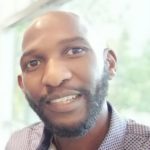Course Description
The Responsible Entrepreneurial Leadership program is a catalyst for profitable solutions to developmental challenges. It presents an economic paradigm centered around renewed thinking of the human person, and provides entrepreneurs, corporate leaders, and development practitioners with the language and framework to harness the power of business to solve complex world challenges.
Course Outcome
Participants who complete this program are responsible leaders who prioritize purpose as strategy in creating multi-stakeholder business models that address problems of people and planet.
Descriptive Tags
Economics. Entrepreneurship. Responsible leadership. Impact Business. Sustainable Development. Mutuality. Systems Thinking. Collaboration.
The program includes the following components:
Module 1: Africa - The Problem Defined.
Module 2: Capitalism: Ideology or Natural Law?
Module 3: Responsible Leadership.
Module 4: Purpose Driven Business - A Case for Mutual Value Creation.
Module 5: Activating Purpose as Strategy (Overview).
Module 6: Managing Natural Capital
Module 7: Managing Human Capital
Module 8: Managing Social Capital
Module 9: Group Project Presentation & Program Conclusion.
Cost | $500 |
Prerequisite Requirements | An entrepreneurial, transformational leadership drive is imperative. Prior cross-sectoral experience and learning in the development space would be beneficial. |
Time | 9 weeks. |
Instruction Method | Virtual. |
Level of Instructor Involvement | Instructor-led 75-minute weekly Zoom session, weekly assignments, and discussions. |
Credit | Certified Responsible Entrepreneurial Leader. No academic credit. |
Facilitator

Kudzai Masimira is passionate about leadership and the power of business to transform nations. He has served at various levels of leadership with Youth With a Mission for the past 18 years, with his work equipping young leaders in transformational leadership and applied biblical thinking, taking him across Africa, Asia, Latin America, North America, and Europe. His roles include: Programs and Outreach Director at Mozaik Institute, member of the Dean's Team of the College of Humanities and International Studies with the University of the Nations, and facilitator at the South African Creative Industries Incubator, the only creative industries incubator with an accredited incubation curriculum in Africa. Kudzai holds an MBA from Bakke Graduate University. He’s a Certified Economics of Mutuality Practitioner with Oxford University (Saïd Business School) & Mutual Value Labs, and a Certified Keys Activator.
For more information and to learn about the next cohort dates, email kudzai.masimira@bgu.edu.